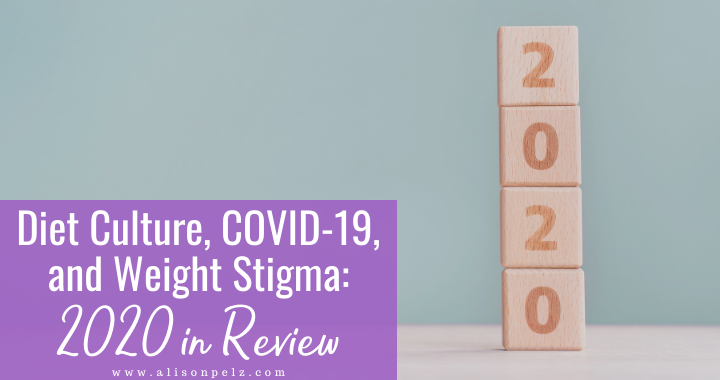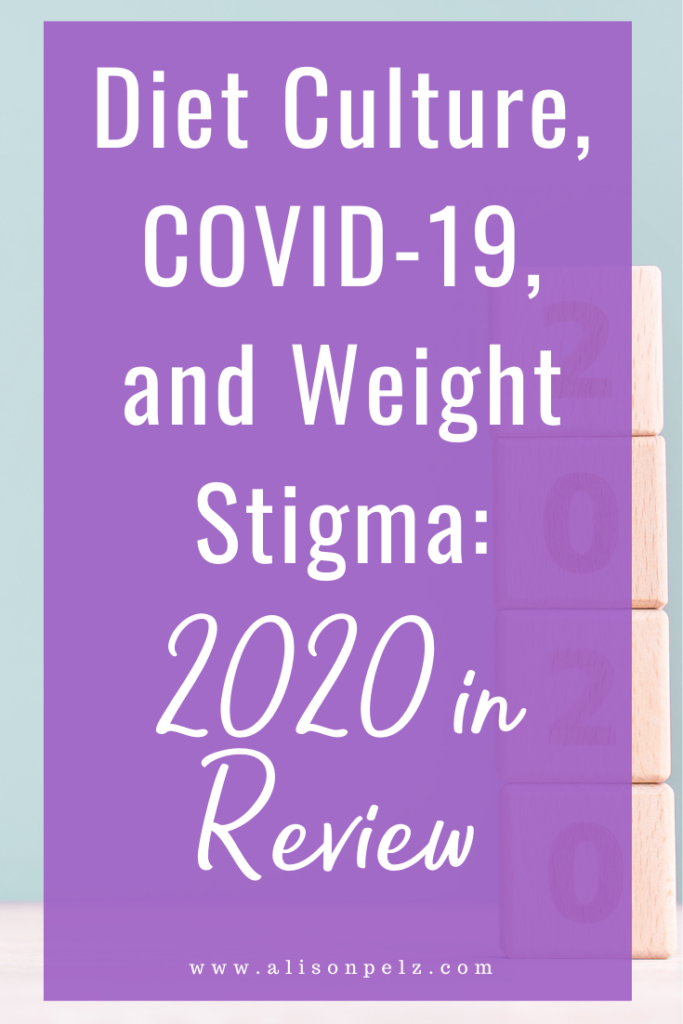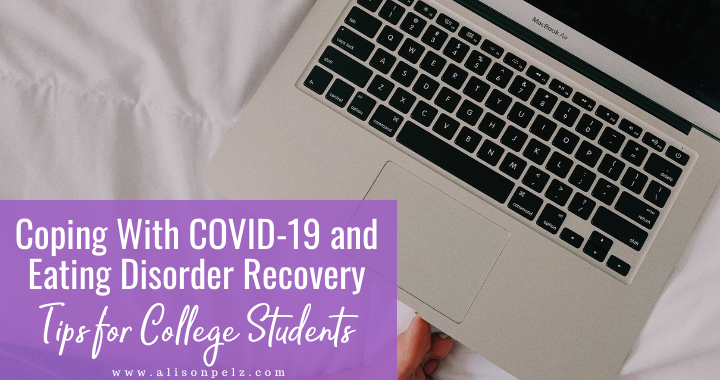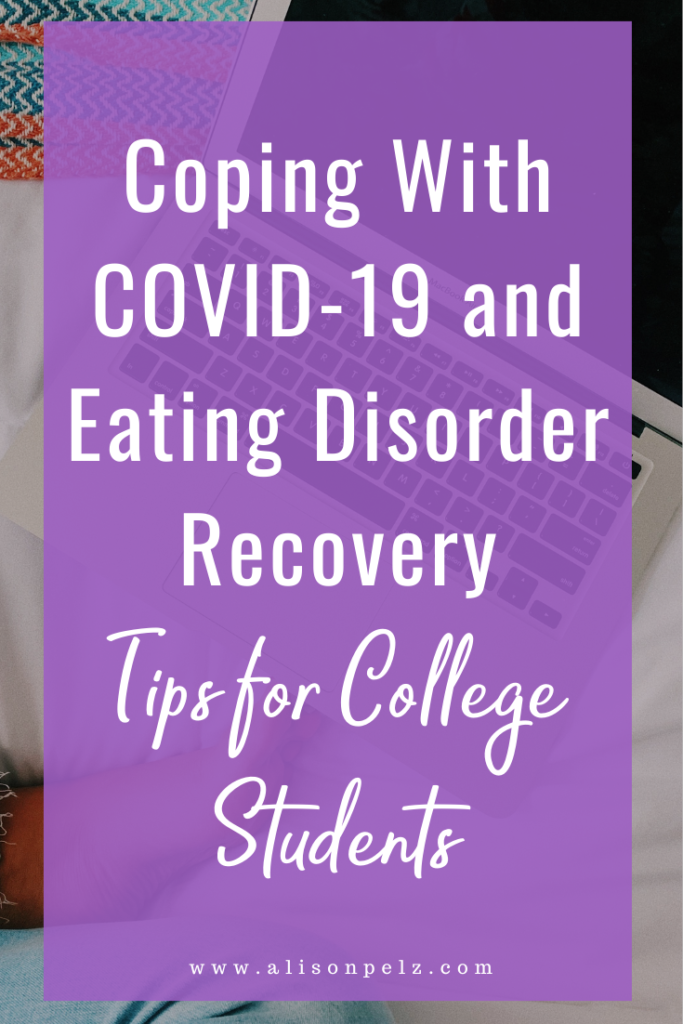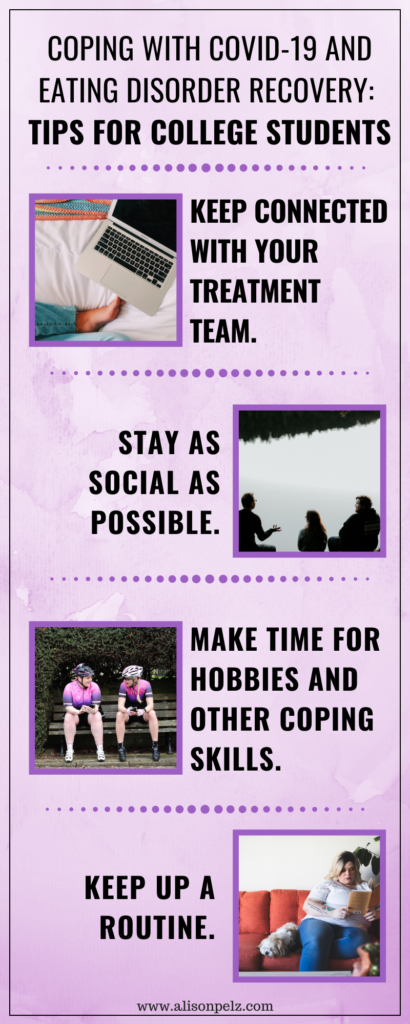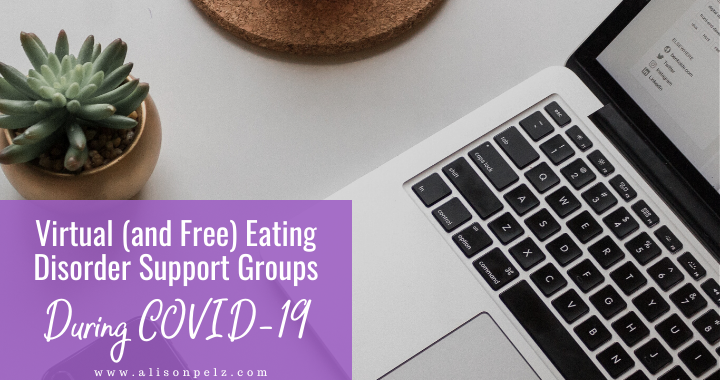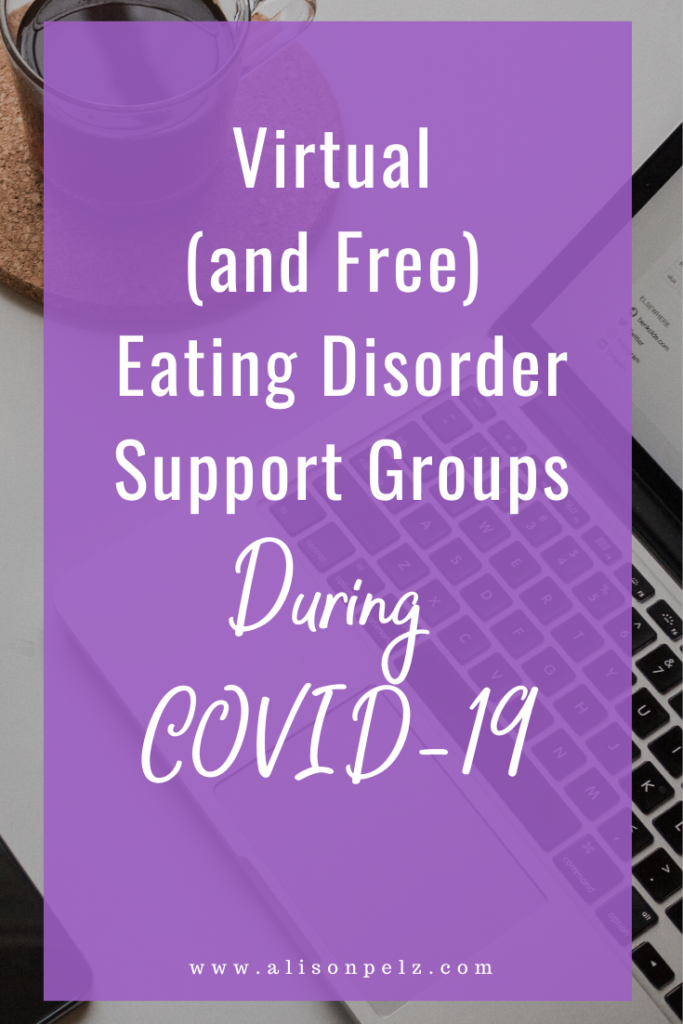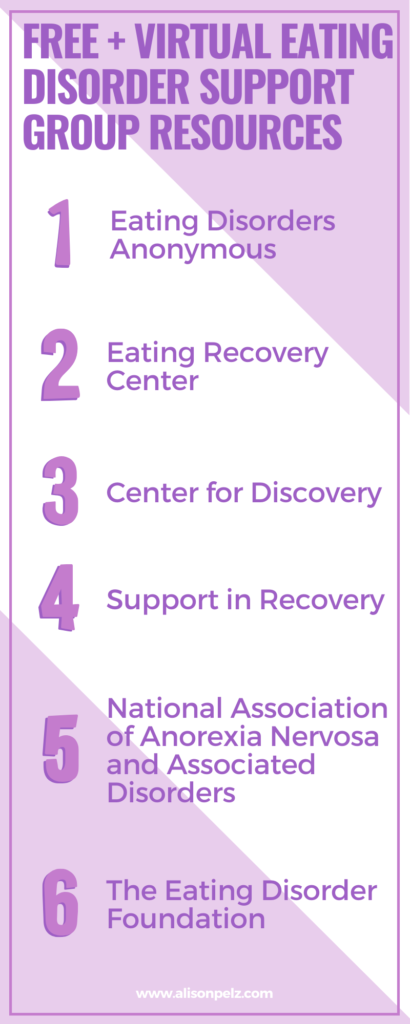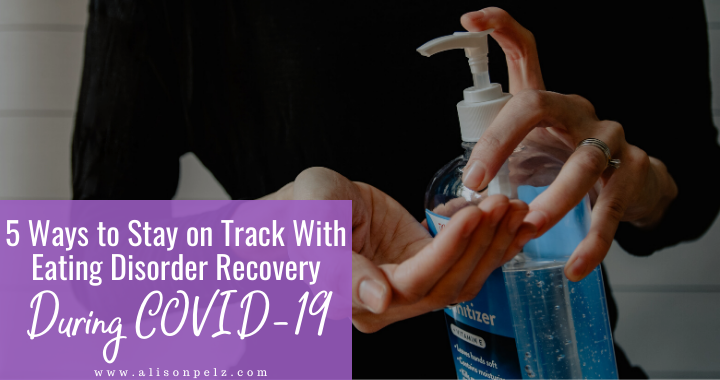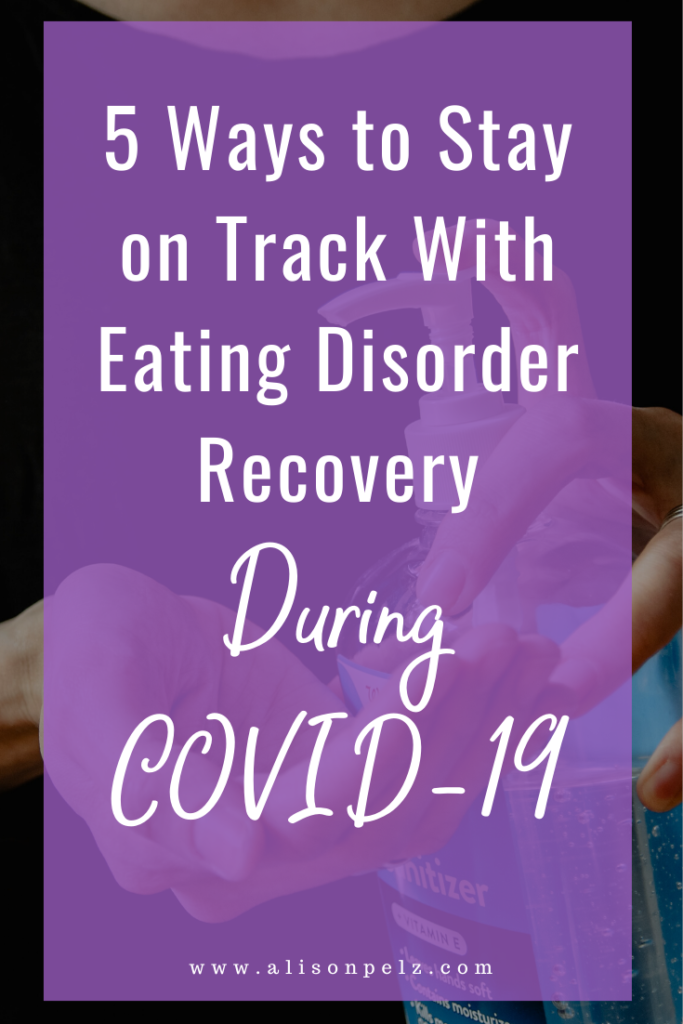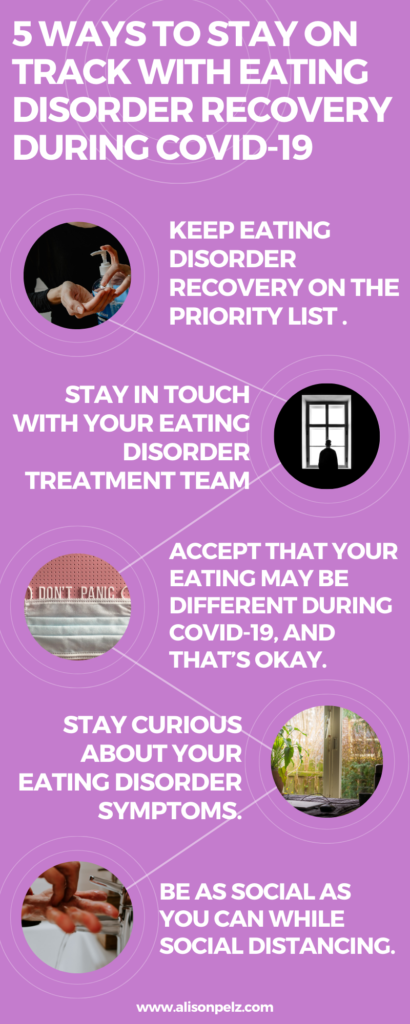At the end of every year, I like to put together a post that collects everything I’ve published on my blog over the last year. And what a year it’s been. This year is nothing like we imagined it would be. We have lost almost a year of being with family and friends, experiencing new things, and living our ‘normal’ lives. If you’re feeling grief about this year, the lives lost and changed, and what could have been, you’re not alone.
This year has been hard, sad, lonely, scary, weird, and pretty much any other adjective out there. It can be hard to hold space for all of those things at once, so be gentle with yourself as you work through your feelings about 2020.
Here’s what I wrote about this year:
This year, I wrote a lot about the COVID-19 pandemic and how that interacts with folks in eating disorder recovery.
When things get hard, communities thrive. The eating disorder recovery community is more important than ever with many of us isolated and unable to connect with other ED survivors in real life. I wrote about 5 Ways to Stay on Track With Eating Disorder Recovery During COVID-19, Virtual (and Free) Eating Disorder Support Groups During COVID-19, and Coping With COVID-19 and Eating Disorder Recovery: Tips for College Students.
Rejecting Diet culture
One of my favorite ways to learn about rejecting the diet mentality is through podcasts! I put together a list of my top podcasts to help you break free from diet culture. (I also included a tip for how to find anti-diet resources: “It’s easy to be wary of what you find related to body positivity and anti-diet resources, since the movement has been flooded with people trying to cash in without spreading the actual message of the anti-diet movement. When looking for a trusted resource online, make sure that they mention on their website (hopefully prominently!) that they believe in dismantling diet culture, center larger bodies, and don’t mention weight loss anywhere on their site.”
Eating Disorders
Eating disorders are a complicated subject. One of my goals is to help people challenged with ED and other food & weight-related concerns to move from constantly worrying about food and their weight to being free to create the lives they want. The first step here is understanding what eating disorders actually are. To help, I discussed 3 Important FAQs about Binge Eating Disorder on the blog. While some of us understand the basics of eating disorders and anxiety on our own, it’s rare to see a blog post connect the two and tell you what you need to know if you’re living with an eating disorder and an anxiety disorder. I wrote about frequently asked questions related to eating disorders and anxiety to share what I know!
Weight Bias + Stigma
Weight bias is everywhere we look in our culture. It’s led to systematic discrimination of larger bodies in many areas of life – medical care, job opportunities, social interactions, to name a few. So many folks railing against people in larger bodies don’t realize that what really causes negative health outcomes is a result of stigma, not a result of having a larger body, so I wrote about how weight bias and stigma are the real hazards to health, not body size.
If there are any topics you’d like me to cover in 2021, let me know! You can message me here. If you’re looking for even more resources, make sure you’re following me on Facebook and Pinterest!Every week, I share resources from myself + other experts in the field on both platforms!
